Music and Religion in the writings of Ian McEwan
This book examines Ian McEwan’s ability to discern in his writing sentiments that easily resonate with musicians, explores the value of music in exhibiting McEwan’s views on the world, and presents his perspective on religion’s role within society.
The majority of characters in Ian McEwan’s novels are educated members of the middle class, but without any great private financial means and certainly no great affluence. Despite different occupations, whether scientist (Solar), musician (On Chesil Beach, Amsterdam) or surgeon (Saturday), they are faced with moral, ethical, religious and personal dilemmas that bear resonance to a contemporary audience.
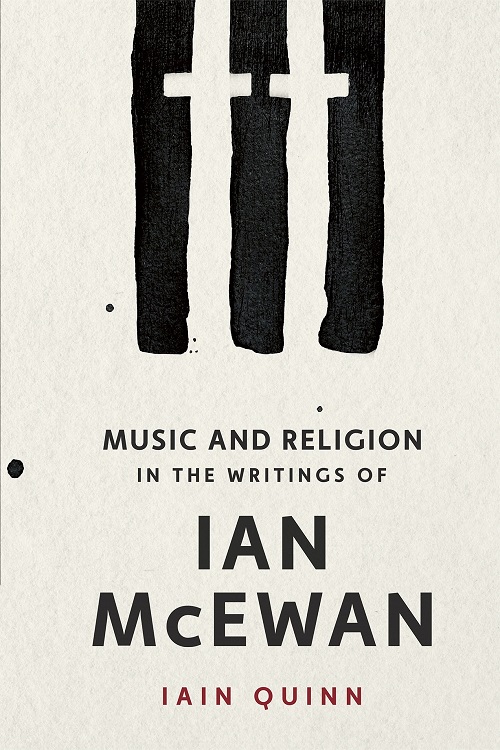
Classical music is present throughout McEwan’s writings (including his recent Lessons, 2022), mostly not as an accompanying theme but as a necessary part of life’s pleasures and for some, essential needs. The combination of music and the unforgettable narrative moments create a unique space for McEwan to translate his views on the world. The value of music, not least as a complementary presence to silence, is portrayed not just as the source of comfort but as a known presence that is dependable to an individual on a near spiritual level. Within his writings there is also a clear understanding of the role of the Church of England as a societal, cultural and established presence within British society. In the literary descriptions of McEwan and other authors this often extends beyond the immediate theological and ecclesiastical concerns of the day. McEwan’s writings demonstrate a perceptive knowledge of the nuances of this highly specific cultural dynamic.
McEwan’s ability to discern sentiments that easily resonate with musicians place his contribution to the field of music and literature studies in a singular position among living writers discussing classical music in Britain. This book provokes questions for those who encounter these areas for the first time in McEwan’s writings, and it offers a place of sustained enquiry for those who have experienced these fields first-hand, whether as listeners, performers, congregants, audience members or scholars across literary, musical or ecclesiastical fields. Iain Quinn’s book will be of interest to scholars and students of contemporary British literature, as well as those interested in words and music studies more generally.
Rudolph Ganz, Patriotism, and Standardization of The Star-Spangled Banner 1907-1958
This book examines the succession of events toward the potential standardization of the music for “The Star-Spangled Banner” from an initial letter to President Roosevelt in 1907 to the 1958 congressional hearings on the National Anthem, and the later work of the Swiss-Born American pianist, Rudolph Ganz. These events took place across five decades when a culture of public patriotism was especially pronounced for immigrant musicians.
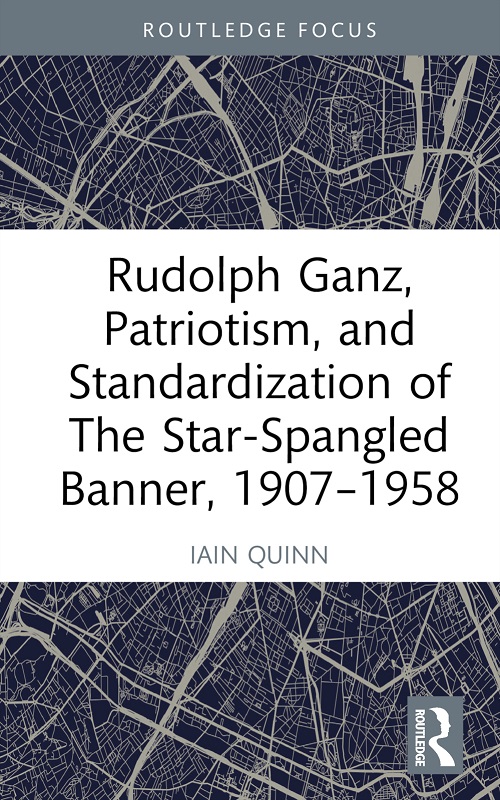
This book contextualizes the complementary experiences of a leading immigrant musician, Ganz, who successfully navigated the world of public patriotism while pursuing the realization of a standardized version. The materials are discussed through the lens of the performance practice.
The legacy of standardization has not previously been examined. The response and actions of an immigrant, Ganz, in a culture of necessary patriotism for foreign-born artists shed important new light on this topic. It demonstrates the challenges, fears, and cultural expectations regarding the standardization of an important patriotic work.
Life and Letters of John Bacchus Dykes
Joseph Thomas Fowler’s 1897 edition of the Life and Letters of John Bacchus Dykes remains a critical document when assessing the musical life of the Church of England in the nineteenth century. It is filled with details concerning Dykes’ involvement with the first edition of Hymns Ancient and Modern (1861) and the compositional process behind many of the hymns that are well-known today across several denominations. This is a riveting discourse for anyone with an interest in church life, England and its hymnody in the nineteenth century, and the nature of an individual commitment to parish ministry. Dykes emerges as a figure that may well be an inspiration to many embarking on a journey of ministry, whether clerical or musical, and it is hoped that this text will be a source of reference to both scholars and those who seek to further the work of the church.
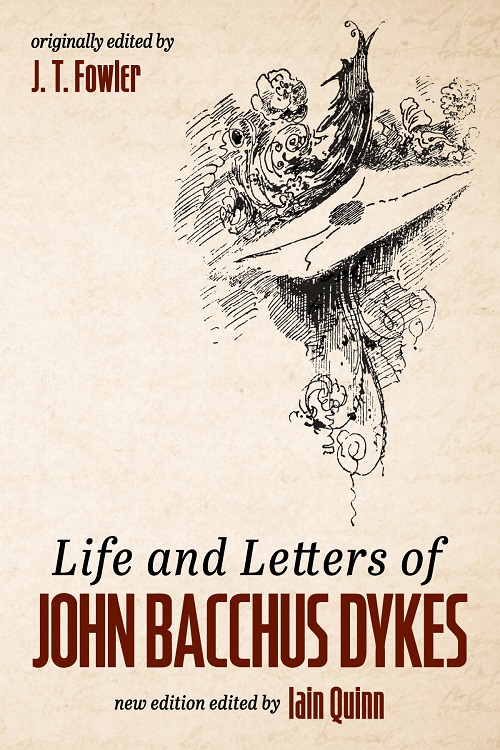
Studies in English Organ Music
Studies in English Organ Music is a collection of essays by expert authors that examines key areas of the repertoire in the history of organ music in England. The essays on repertoire are placed alongside supporting studies in organ building and liturgical practice in order to provide a comprehensive contextualization. An analysis of the symbiotic relationship between the organ, liturgy, and composers reveals how the repertoire has been shaped by these complementary areas and developed through history. This volume is the first collection of specialist studies related to the field of English organ music.
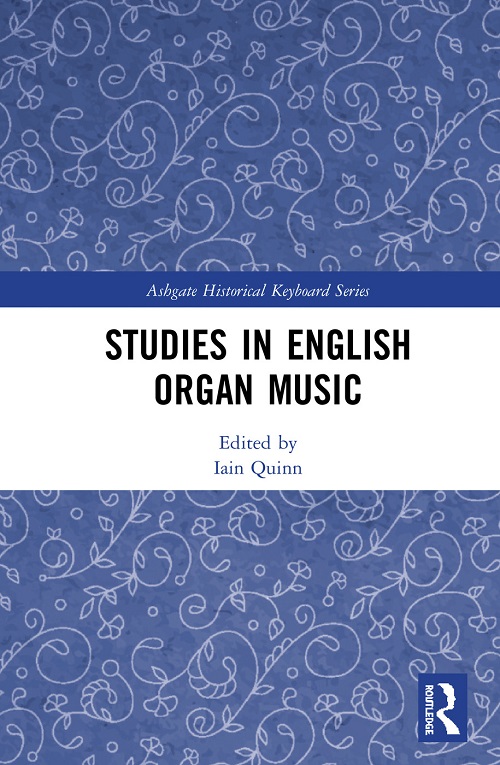
The Organist in Victorian Literature
The book examines the perception of the organist as the most influential musical figure in Victorian society through the writings of Thomas Hardy and Robert Browning. This will be the first book in the burgeoning area of research into the relationship of music and literature that examines the societal perceptions of a figure central to civic life in Victorian England.
This book is deliberately interdisciplinary and will be of special interest to literature scholars and students of Victorian studies, culture, society, religion, gender studies, and music.
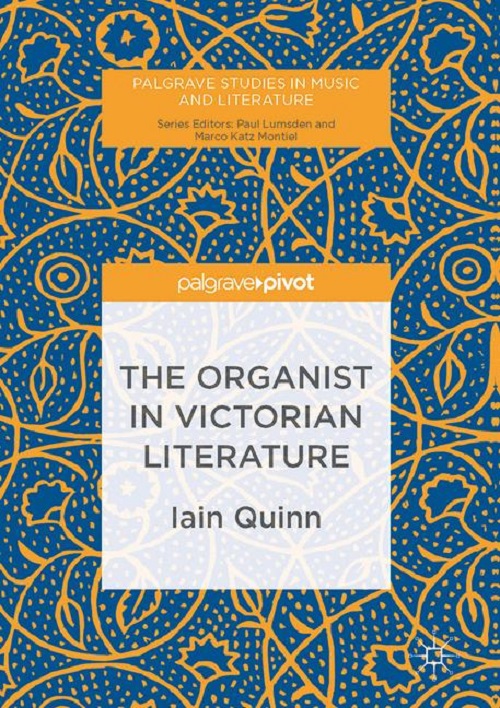
The Genesis and Development of an English Organ Sonata
This volume considers the influences and development of the English organ sonata tradition that began in the 1850s with compositions by W. T. Best and William Spark. With the expansion of the instrument’s capabilities came an opportunity for organist-composers to consider the repertoire anew with many factors reinforcing a desire to elevate the literature to new heights. This study begins by examining the legacy of the keyboard sonata in Britain and especially the pedagogical lineage that was to be seen through Mendelssohn and ultimately the early organ sonatas.
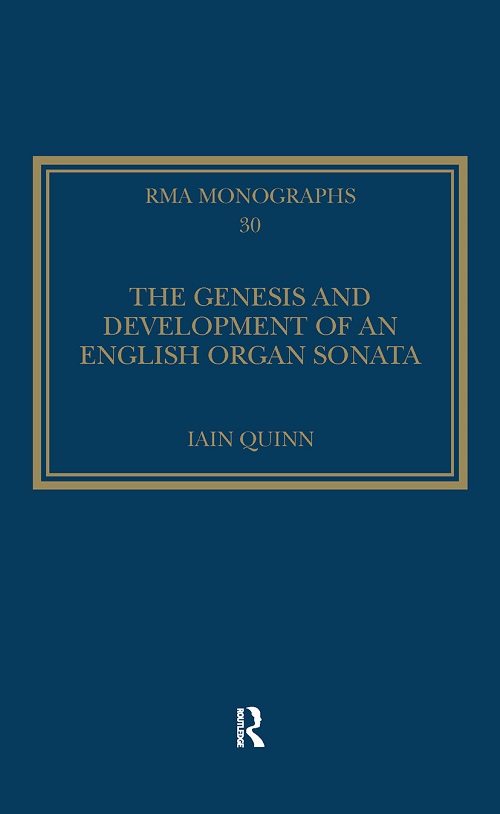
The abiding influence of William Crotch’s lectures are studied to illuminate how a culture of conservatism emboldened the organist-composers towards compositions that were seen to represent the ideals of the Classical era but in a contemporary vein. The veneration of Bach, Mozart and Beethoven is then examined as composers wrote “portfolio” sonatas, each with a movement in a contrasting style to exhibit their compositional prowess while providing repertoire for the novice and connoisseur alike. Finally the volume considers how the British organist-composers who studied at the Leipzig Conservatorium had a direct bearing on the furtherance of an organ culture at home that in turn set the ground for the seminal work in the genre, Elgar’s Sonata of 1895.